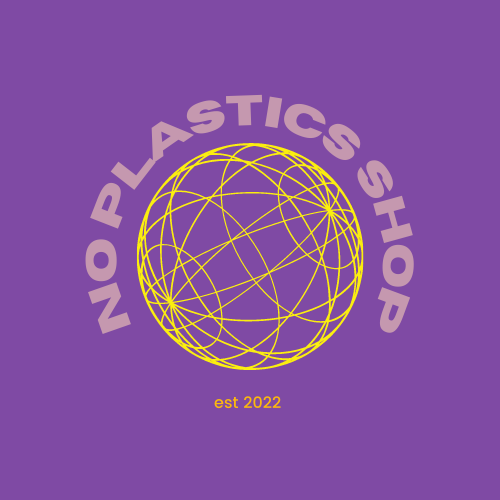Biodegradable Toothbrushes: Eco Oral Hygiene
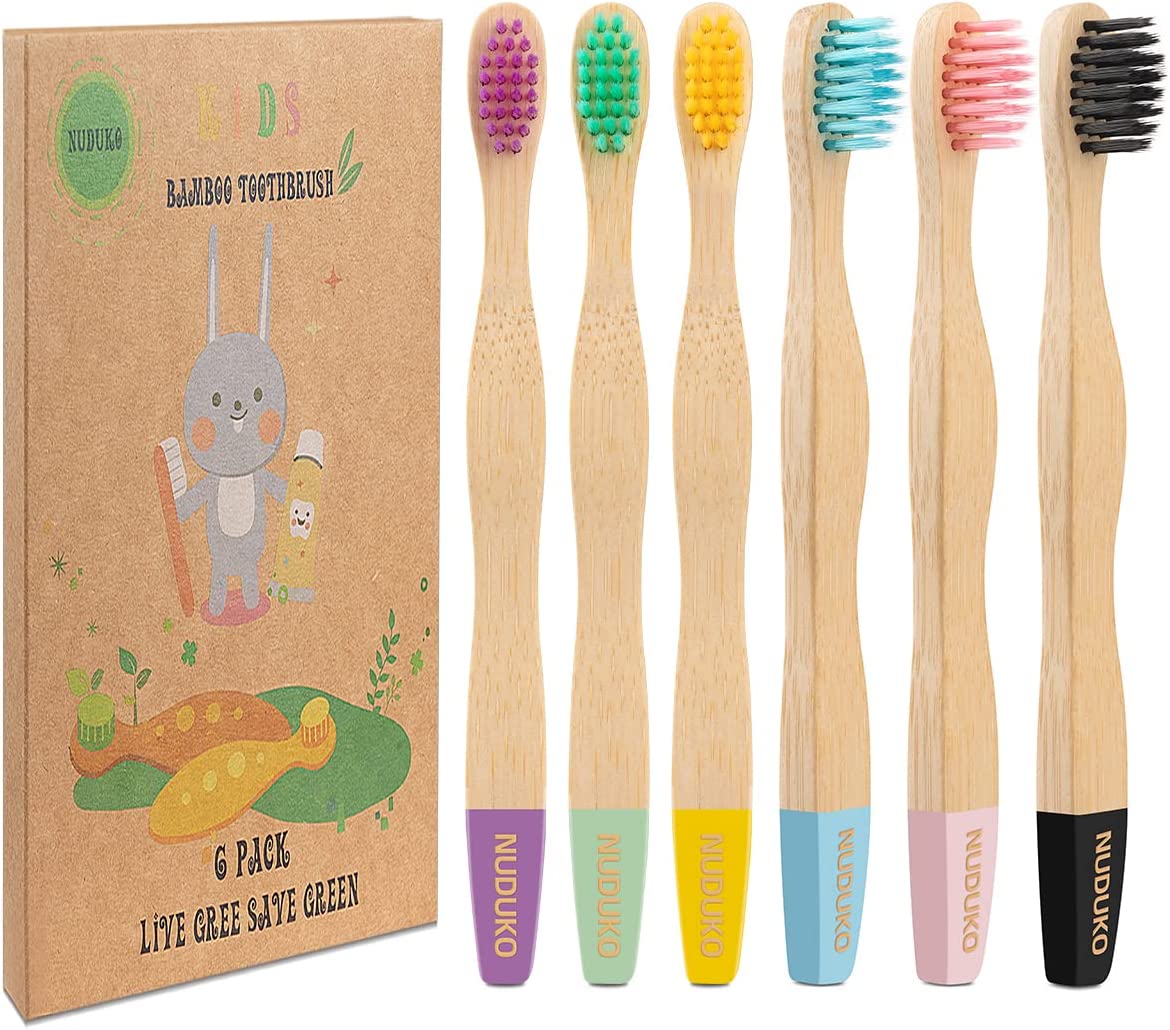
Most Eco Responsible Toothbrushes To Be Found On Amazon: With No Hidden Plastics
People have been cleaning their teeth for ages and managed not to litter up the planet. In the space of a short time, we've sure managed to pile up an overwhelming amount of plastic toothbrushes that take lifetimes to decompose.
For Plastic Free Toothpaste Go Here
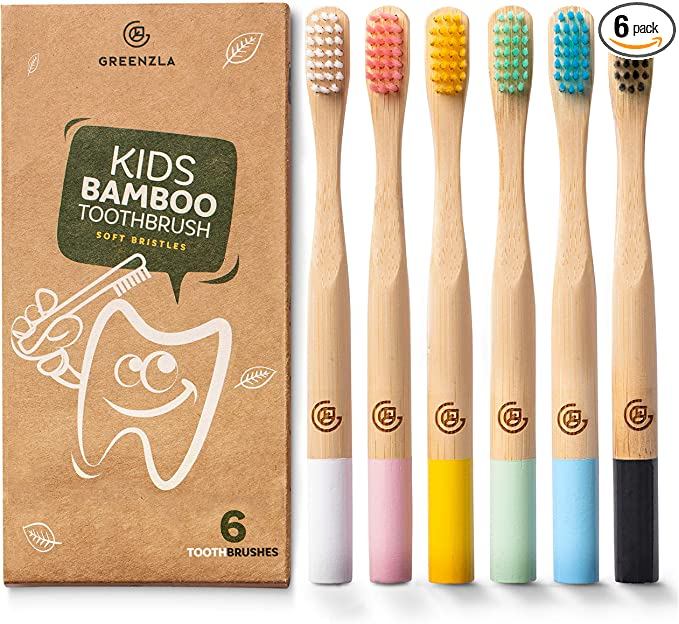
GREENZLA kids : says zero waste but bristle not specified?
No Sense Brushing With Plastic
Our old friend - the plastic toothbrush. You might think it's just a harmless little thing, but it's a devil in disguise. They end up in our landfills, and the nylon bristles are the worst.
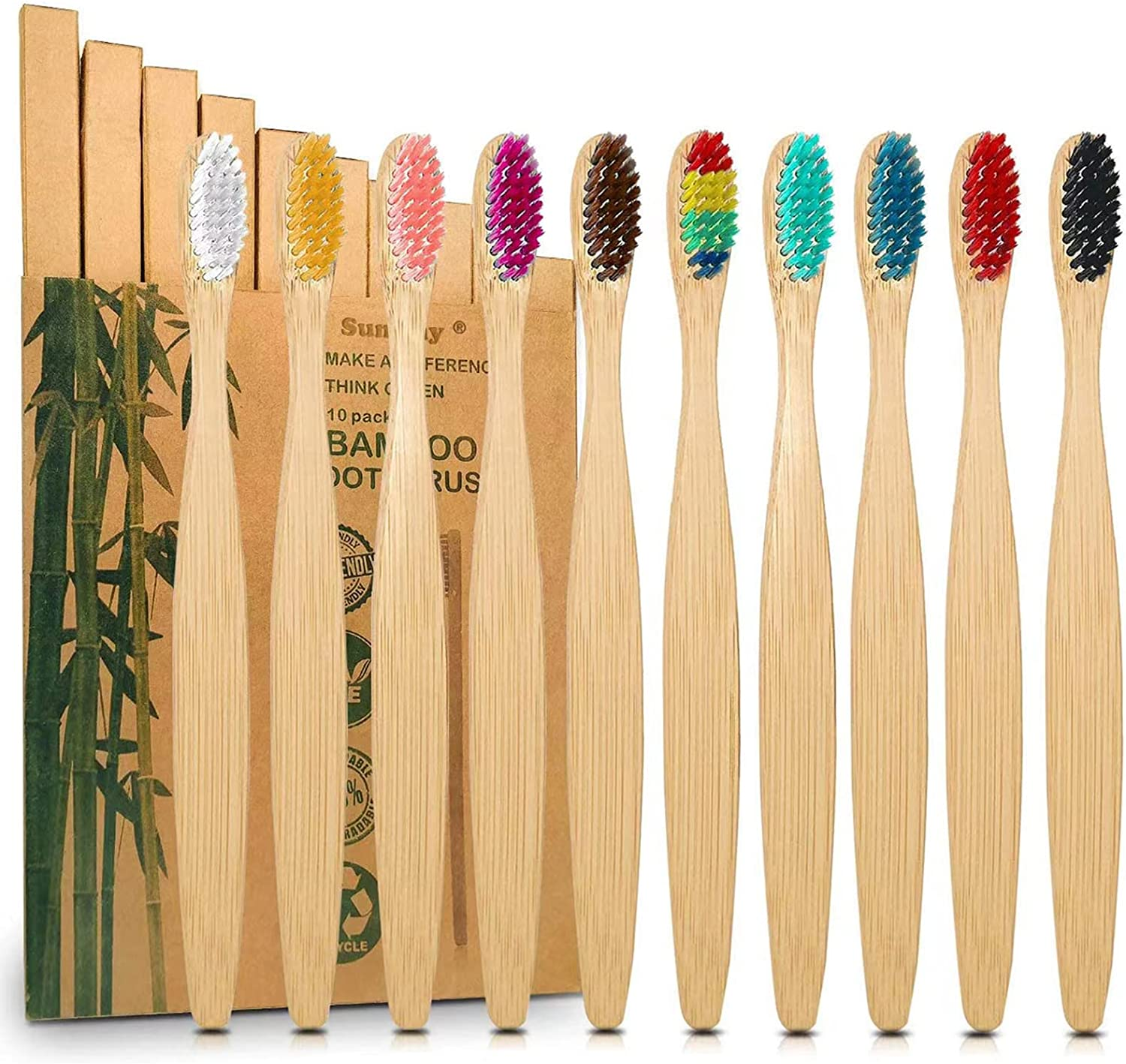
Sumshy 100% plastic free
Eco Packaging And Bamboo Handles Are Not Enough
Plastic toothbrushes are undoubtedly an eyesore and threat to our environment. Did you know that around 4.7 billion plastic toothbrushes end up in landfills every year? And to add insult to injury, these bad boys take around 400 years to decompose.
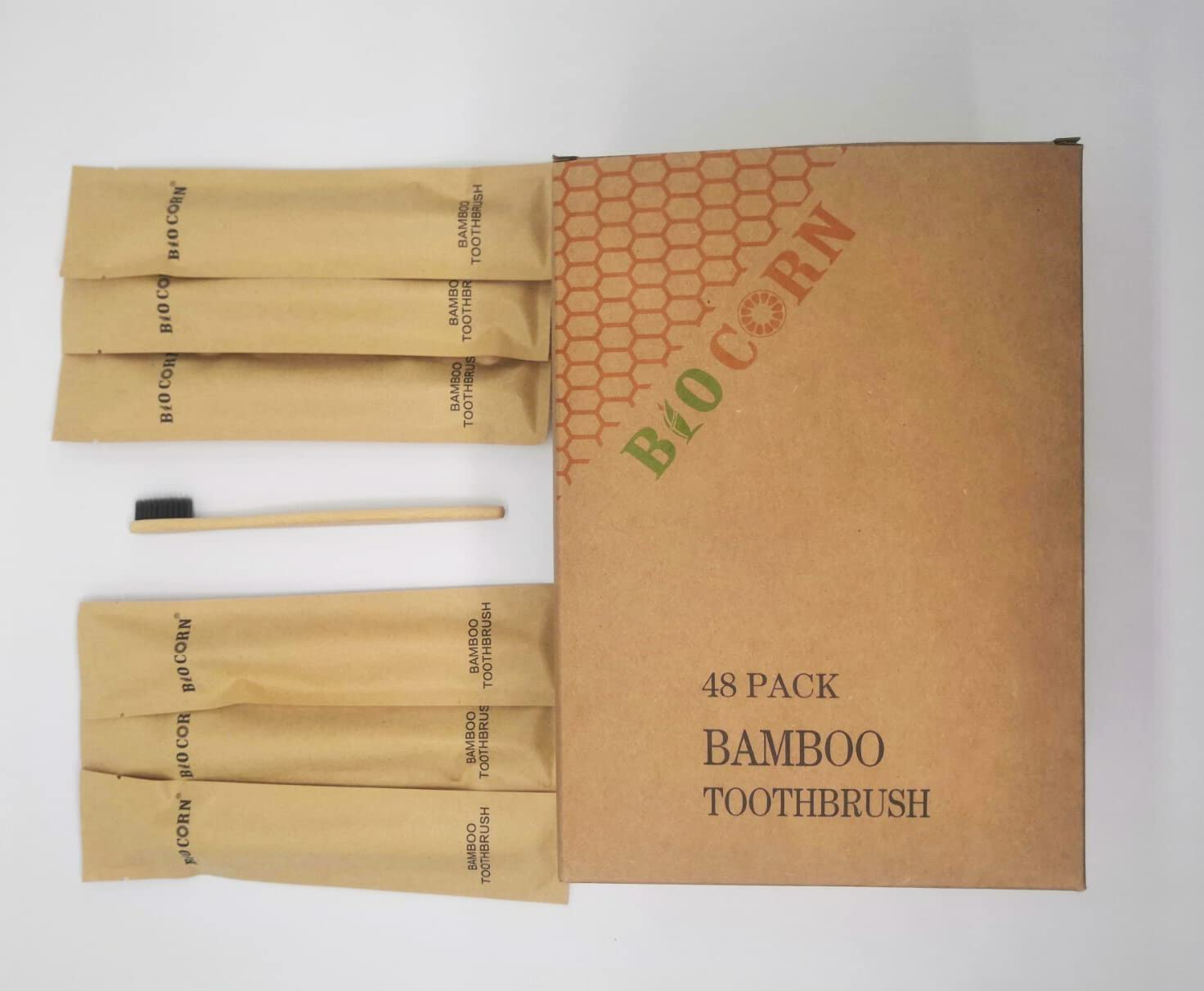
Bio Corn Bamboo Zero Waste.
Bristles Are The Worst Offenders
The solution is as simple as switching to sustainable zero waste toothbrushes. Ones made entirely from bamboo, cornstarch, or other plant-based materials. Compostable, and their manufacture has a much smaller carbon footprint compared to their plastic counterparts.
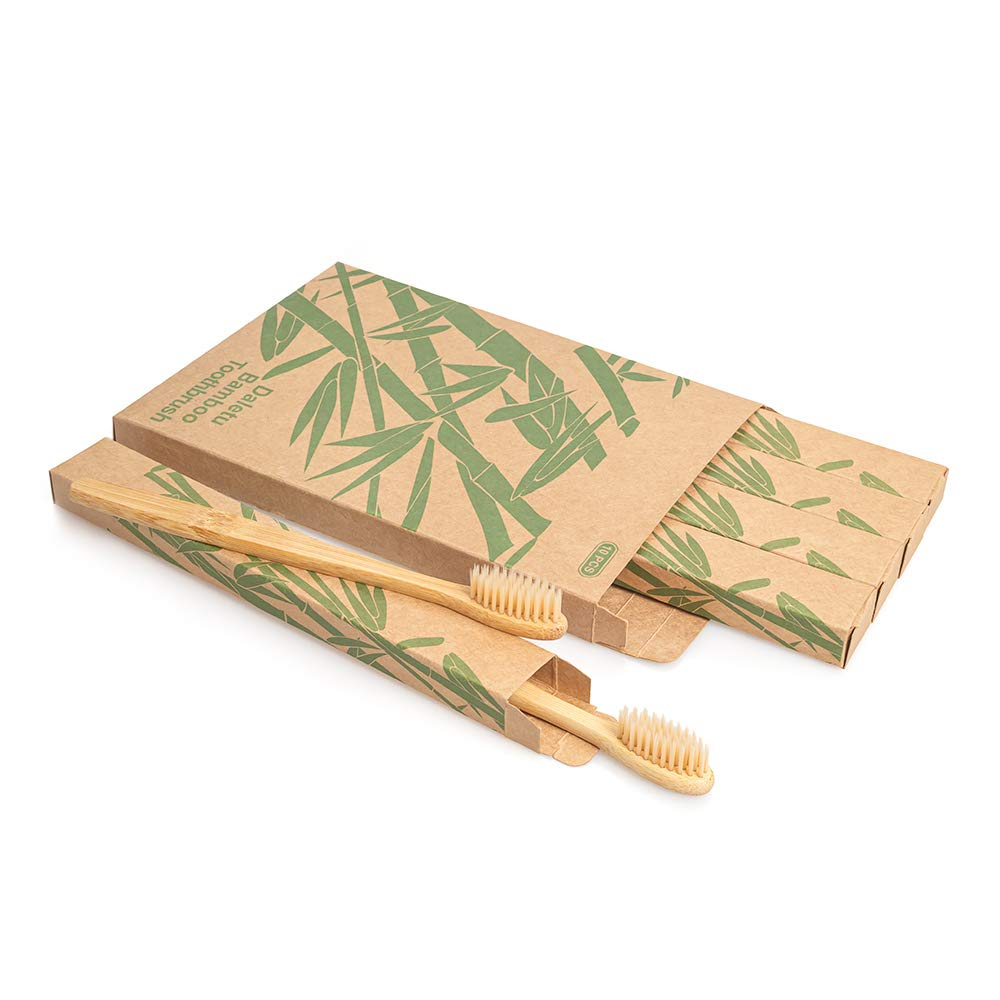
Daletu 100% bio based non plastic
Make The Real Sustainable Change
Some sustainable toothbrushes are made from materials that break down naturally and won't cause any harm to our planet. Plus, they're still just as effective at getting those pearly whites in our mouth shining bright.
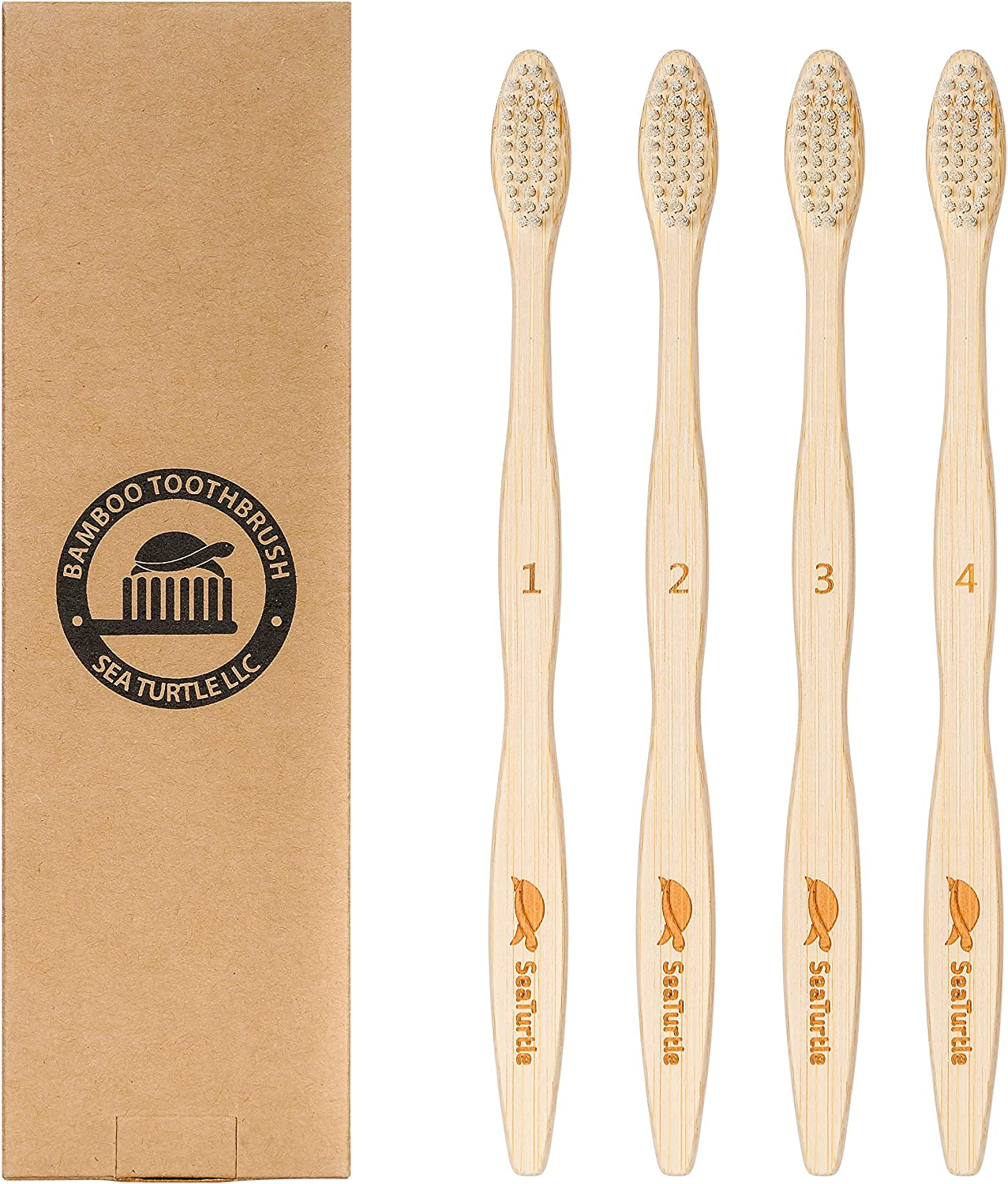
SeaTurtle zero waste biobristles
Lots Of Hidden Plastics In Bristles
Health benefits: many of these eco-friendly options come with charcoal-infused bristles, which have been proven to naturally whiten teeth, remove stains, and improve oral hygiene.
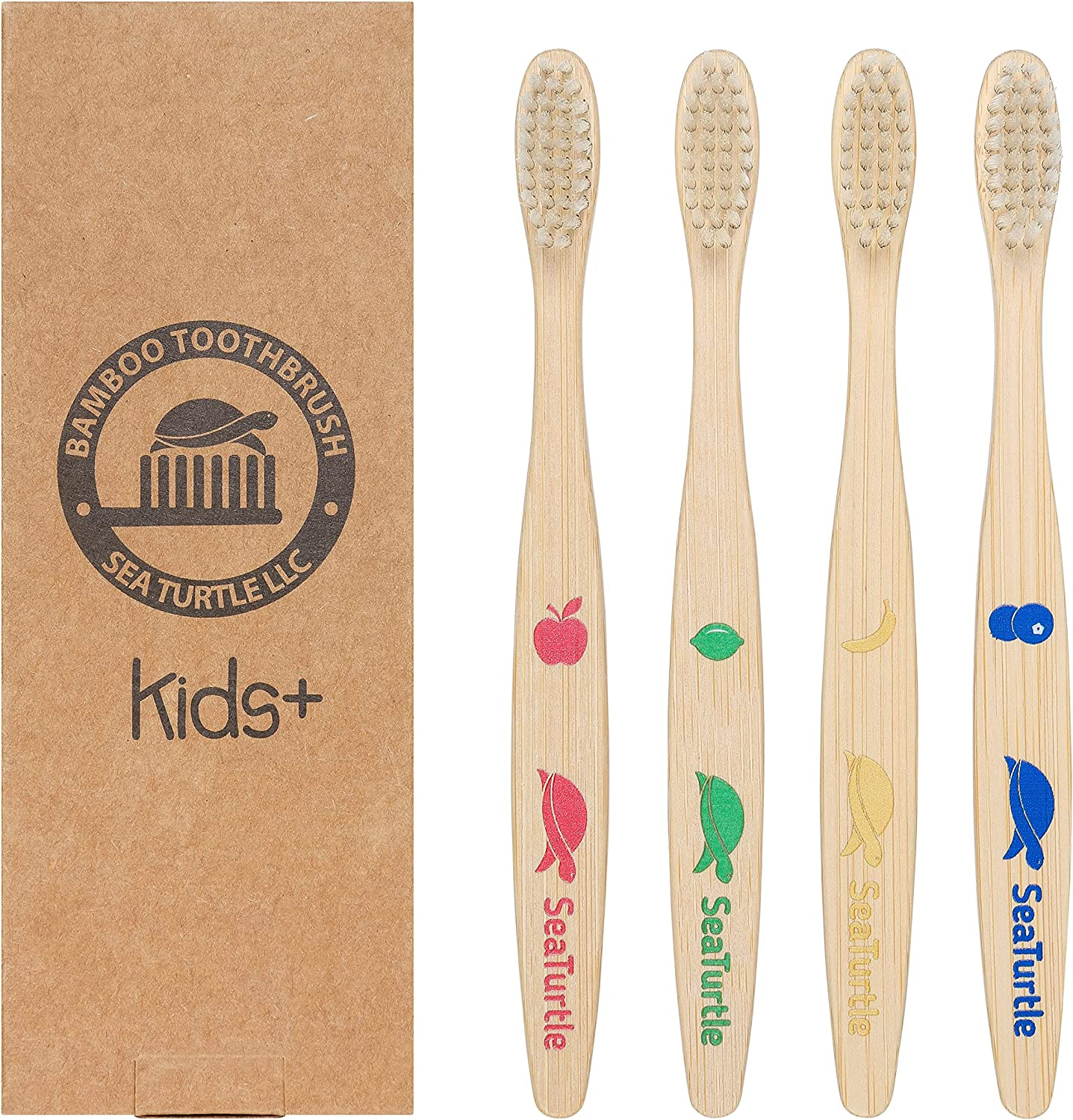
SeaTurtle zero waste plus they plant trees!
Many Sustainable Brands Fooling Us
Unfortunately many brands are out there touting their eco-friendly claims while their toothbrushes are composed of only a percentage of bio-based material. These products not sustainable. Companies fooling themselves and the public by promoting a product that breaks down into microplastics.
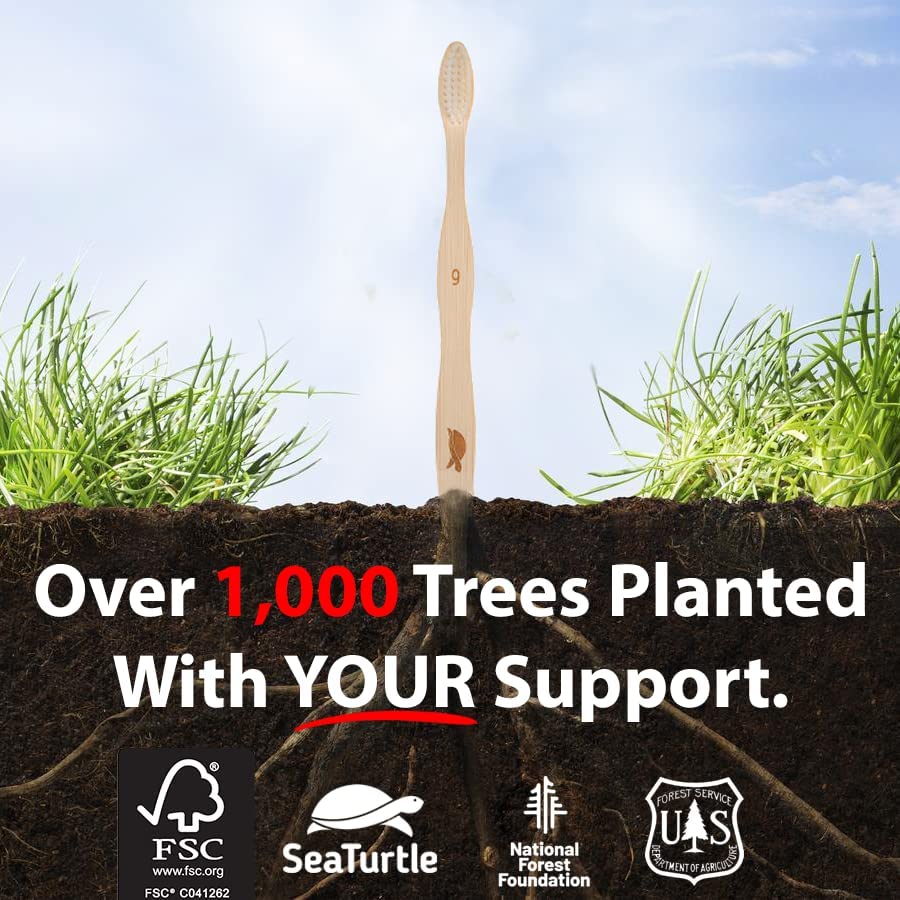
SeaTurtle Bamboo and nylon 1010 (the non petrol one)
"Helpful Plastics" Ya Right
Like PTE or nylon 6 or some other petrol thermoplastic Still plastic folks! Don't fall for it! But.... enter, nylon 1010 - the eco-avengers' response to the pesky pollution caused by petrol-based nylons. This miraculous material is made from castor beans, and still manages to maintain all the desirable properties of traditional nylon.
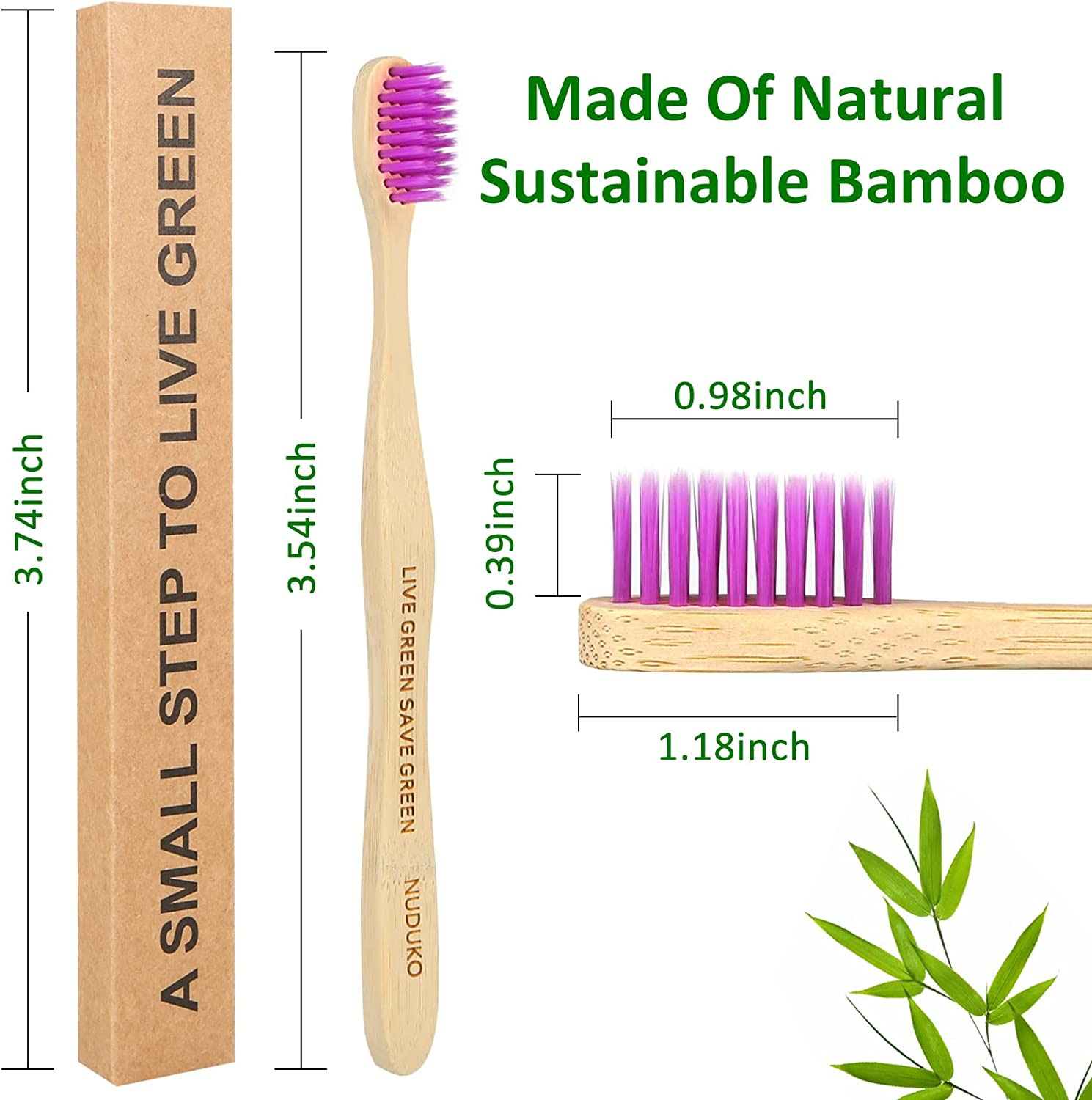
NUDUKO compostable
Don't Buy That Other Unsustainable Stuff
Because castor beans are plentiful in oil, they can produce a bio-based substitute for petrol-based nylon - Nylon 1010 - the development of this little marvel is doing wonders in combating nylon pollution.
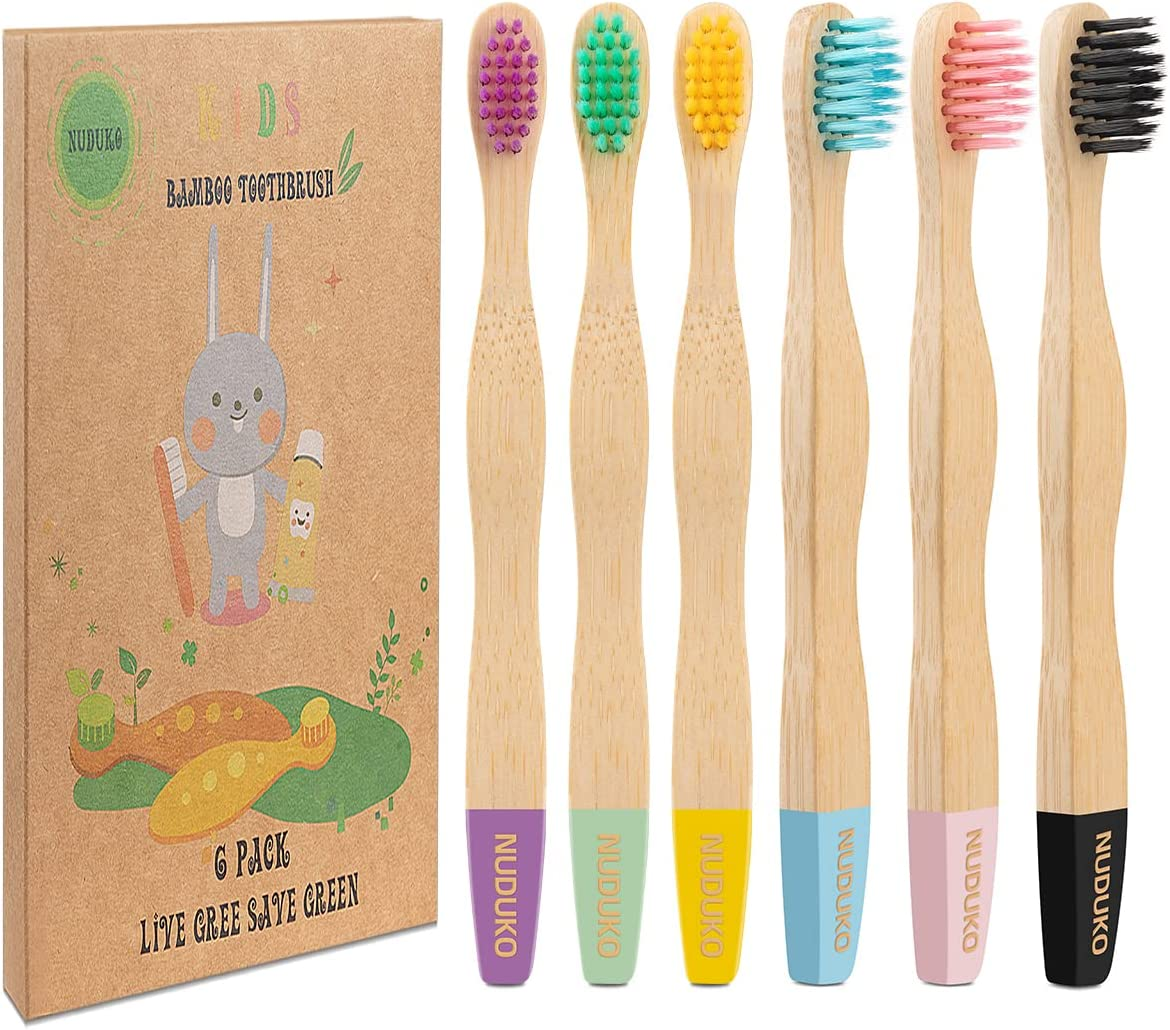
NUDUKO nylon 1010
Nylon Manufacturers Won't Go Away Quietly
Nope, you can bet the Nylon industry will keep trying to sneak their trash products in on us as long as they can. Until we all stand up with our wallets and say enough! We're just not buying that crap anymore!
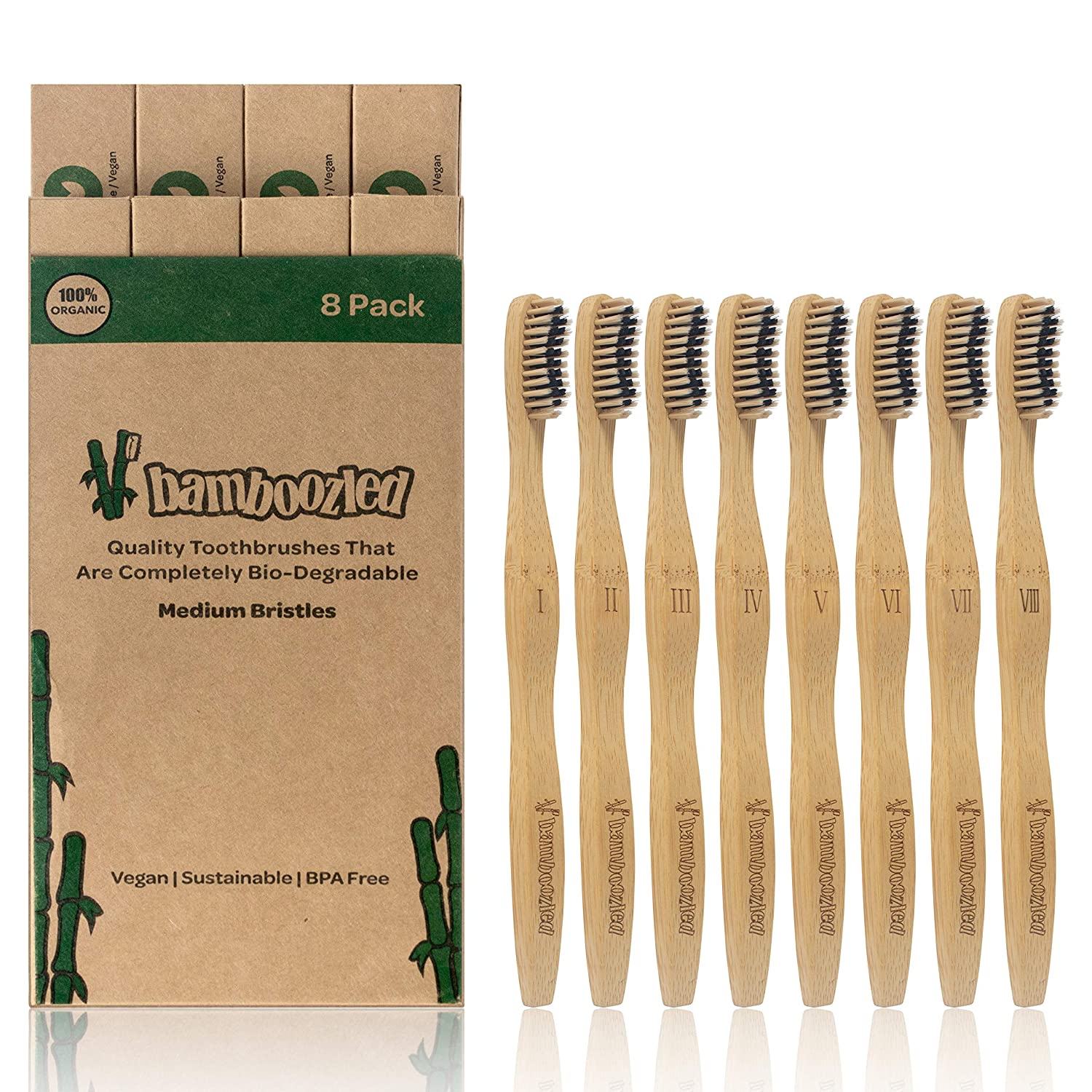
Bamboozled Bio Nylon (unspecified)
So, what exactly is Nylon 1010? It's a polymer made from a combination of castor bean oil and sebacic acid - a fatty acid found in various animal fats and vegetables. This renewable combination not only reduces dependence on fossil fuels and keeps our beloved planet Earth in good shape.
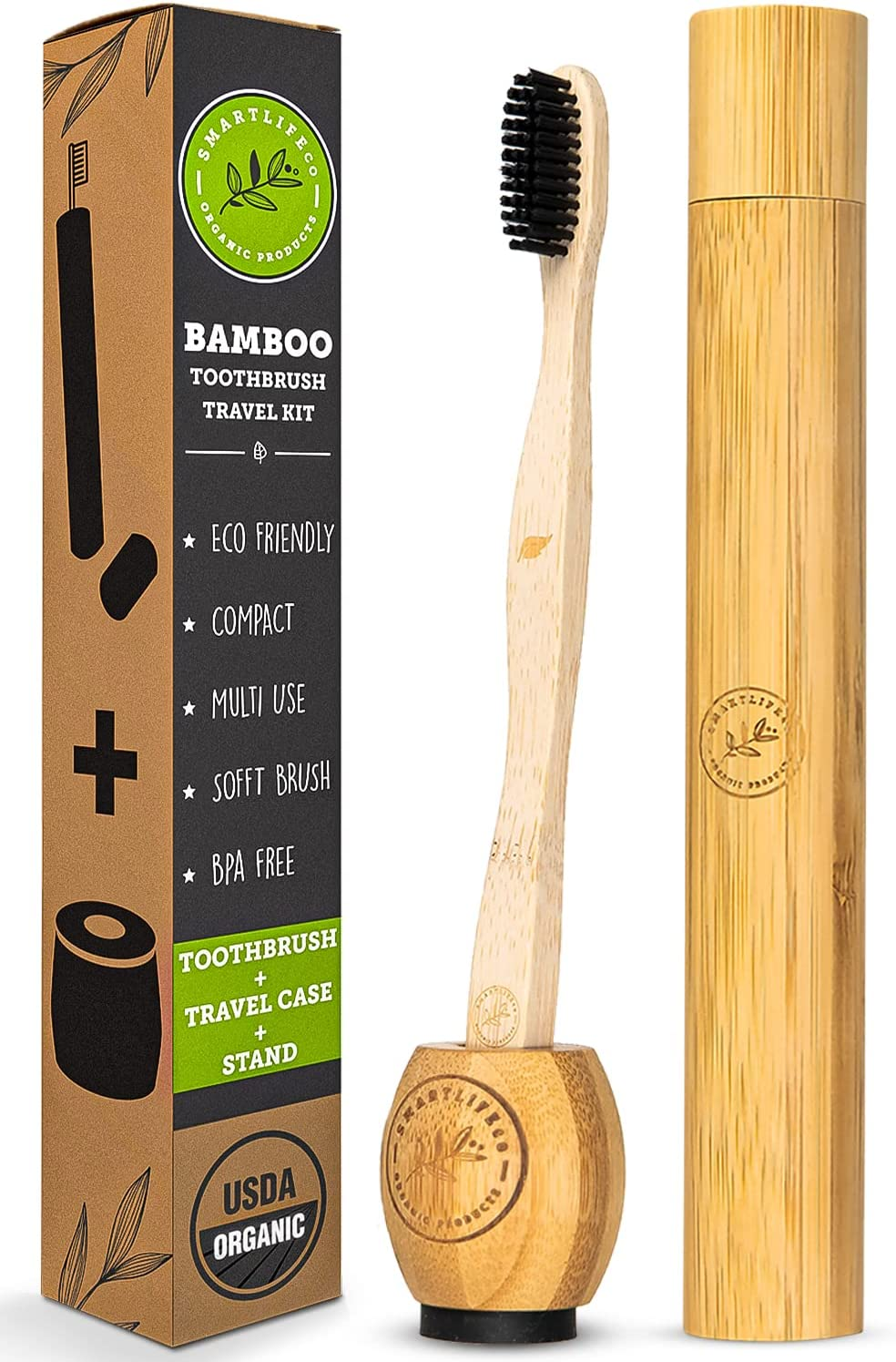
Smartlifeco zero waste
There Are No "Helpful Plastics"
Just alternatives. Nylon 1010 is also stronger and more flexible than regular nylon, making it also ideal for applications beyond toothbrush bristles - kicking petrol-based nylon pollution to the curb!
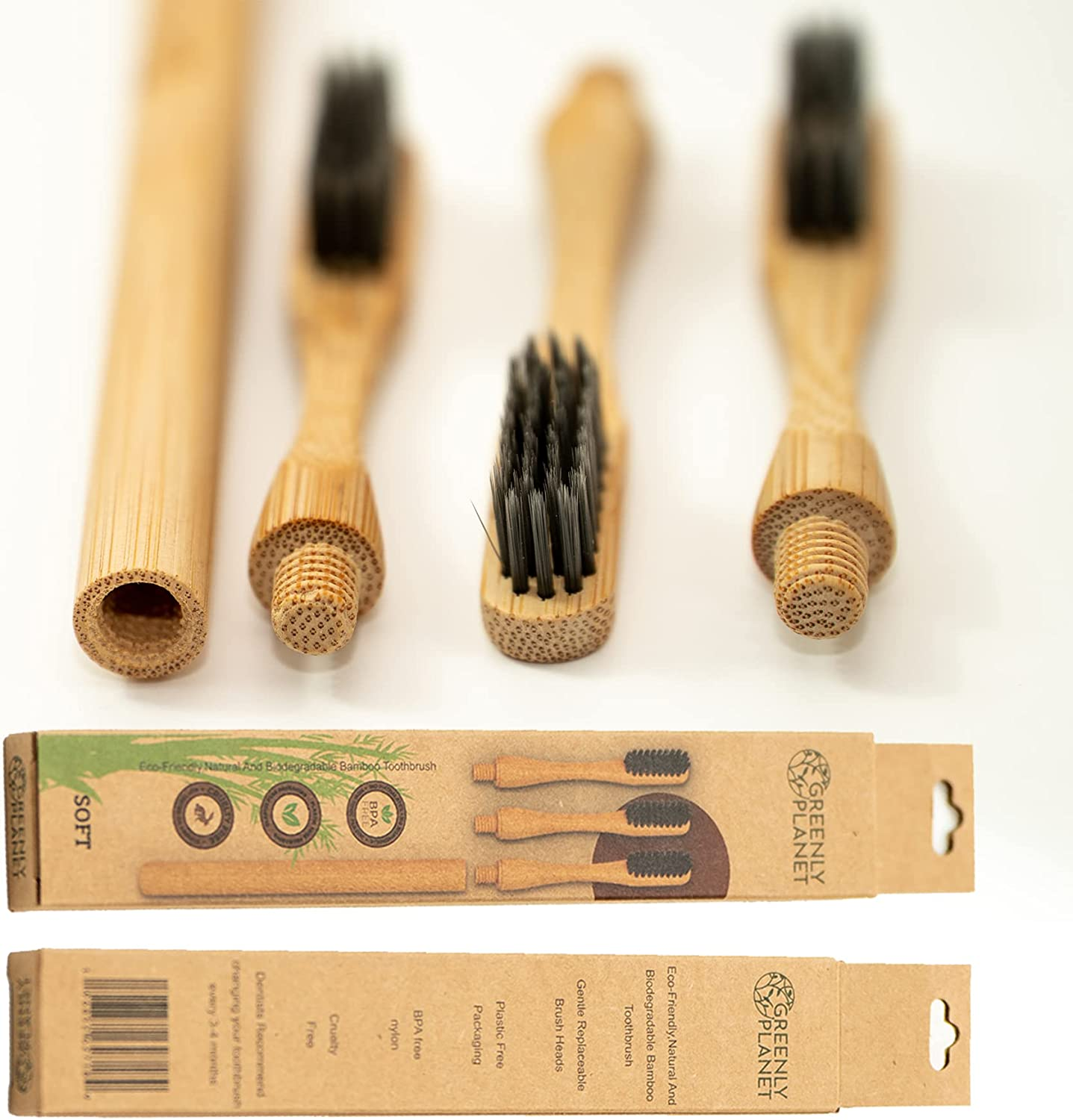
Greenlyplanet zero waste compostable
Bio-based nylon 1010 is a wonder-material. It boasts a melting point of 235°C, high tensile strength, and impressive durability. Translation: it can withstand some serious wear and tear, without taking a hit to its integrity.
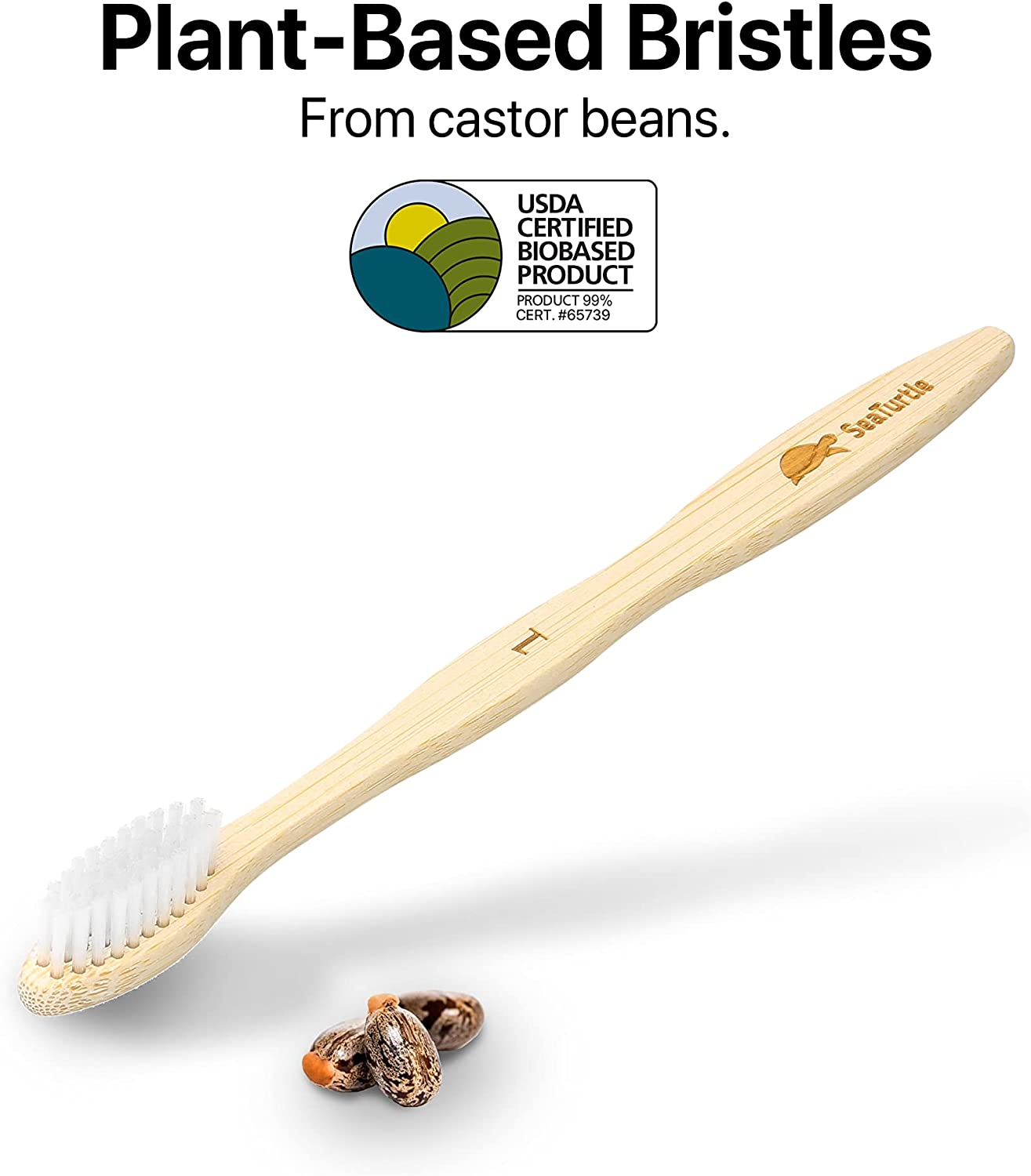
Best Recycled Plastic Toothbrushes
Important to include one Scandinavian company doing the right thing with their 100% recycled plastic and Bio Nylon toothbrushes. Driving the need for more recycled hard plastic products is part of the game.
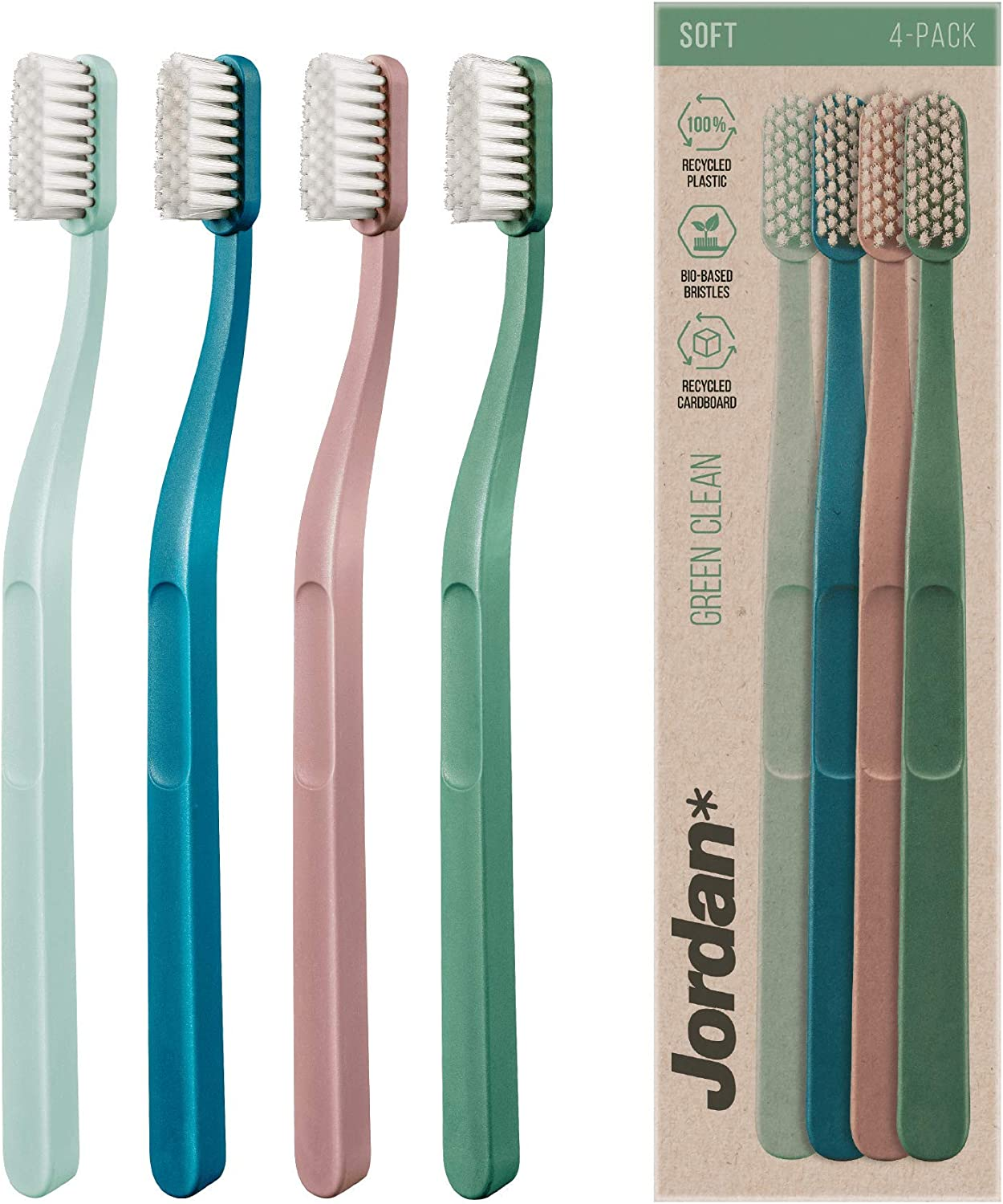
Jordan recycled yogurt containers and bionylon
Other brands are attempting to do the right thing, Worth a mention is the Preserve Store which is using recycled plastic, although the bristles are not.
Bleeker And Rowe are also doing theit part to combat plastics, although the bristle composition is unclear. Overall we consumers require clear material listings.
Our Teeth And Mouth Deserve Better
As a customer, we can command products for our mouth care that also aid in the prevention of toxic waste. In the pages of written history, how will this generation be judged? Will we relieve our planet of this litter of plastics? In review of the best zero waste toothbrushes Amazon has to offer, why not switch to a toothbrush that won't linger on in our landfills?
For Plastic Free Dental Floss Go Here
FAQs
Why do a lot of sustainable toothbrush brands think using nylon is okay?
It's puzzling. Maybe because the plastics industry has done such a convincing job telling everyone that these new “helpful plastics” they've come up with is a solution. The truth is its just creating an even bigger microplastic problem. Bigger because its masked and hidden under the guise of eco-friendly. And well-meaning people buy into this claim.
Is nylon 1010 always bio-based?
No. The polymide nylon 1010 was first petrol based like all plastics. Any sustainable product, by definition, must be derived from something that lives and grows and can grow again. Materials our planet, for the present, is still very generous in providing
If bio nylon is superior, why don't we just make it exclusively?
The bioplastics (misleading term) industry, is new. The established fossil fuel plastics industry, on the other hand, has the power of lots of money, made by trashing our planet. Governments, controlled by that money, are no help. And the industry itself doesn't care to change its habits unless pressured to do so by consumers. That's the short answer. The longer one involves many arguments, some citing competition with food resources. But all of which can be overcome more easily than the mounting piles of plastic.
For more information:






https://www.ncbi.nlm.nih.gov/pmc/articles/PMC7344766/#:~:text=In%20contrast%2C%20PBT%20is%20a,heat%20and%20chemicals%20%5B20%5D.
